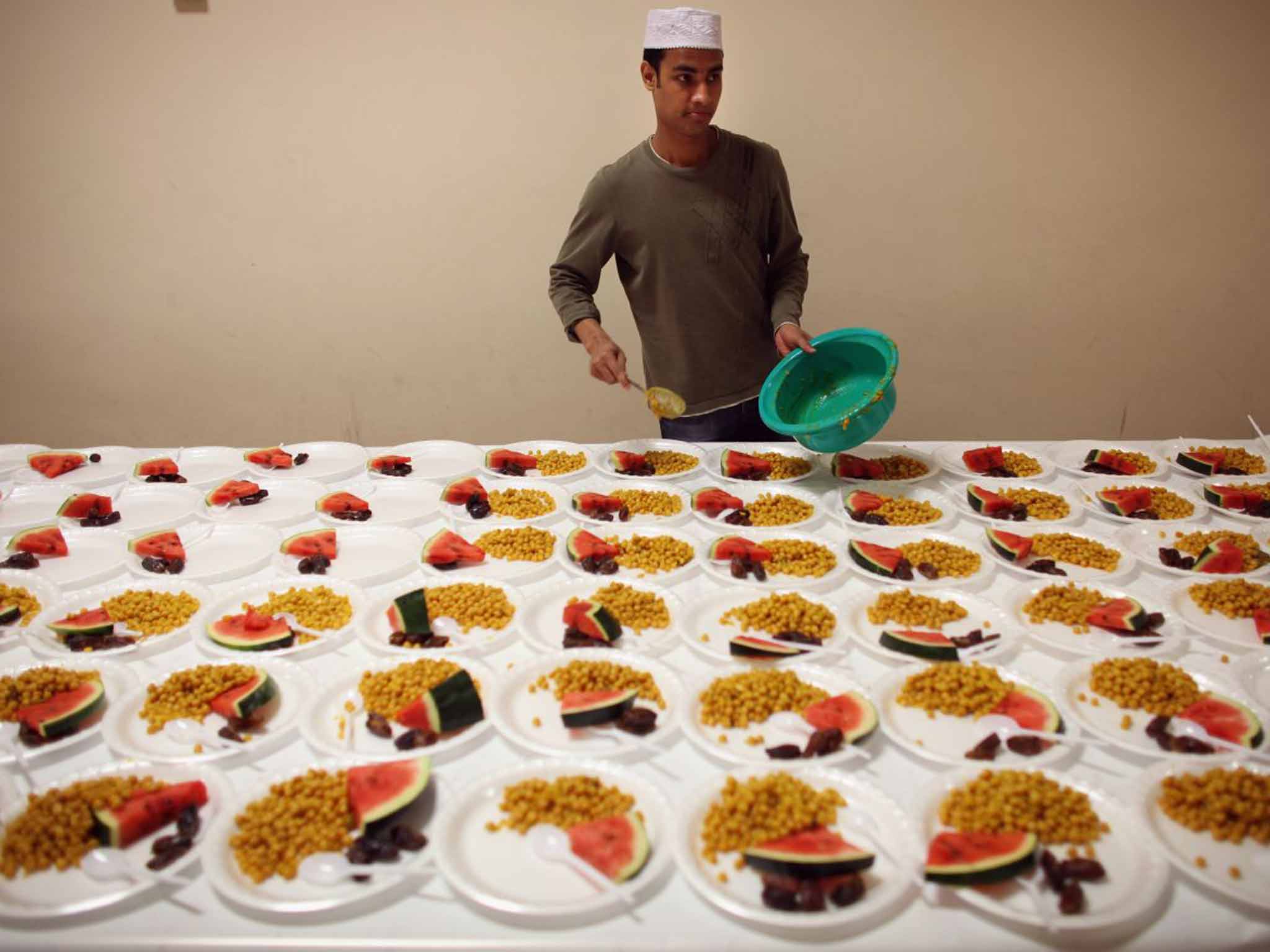Ramadan fasting: Modern opposition to age-old rules
As Ramadan begins, some Muslims in the West (and north) say ancient customs from the Arabian desert need updating

It's that time of year again. Gentle squabbles over moon sightings, the stockpiling of frozen samosas, and the dreaded "Ramadan breath", which means we have to keep a miswak teeth-cleaning stick (or, more likely, a toothbrush) on us at all times. For tomorrow is the start of Ramadan, the ninth month of the Islamic calendar.
This kicks off four weeks of introspection (maybe), God-consciousness (hopefully) and abstinence from food, water, smoking and marital sex (you're having a laugh, aren't you?) during daylight hours. The only exemptions from fasting are for older people or those with medical conditions, as well as children (who may fast if they wish to). Further, menstruating women can expect a break during their time of the month.
Faced with the intricacies and possible etiquette blips of these rituals in a country where non-Muslims are in the majority, you'd think advice from a compassionate and highly intelligent scholar would be lapped up. However, over the past few days, my Facebook feed has been heaving with high-handed dismissals of Dr Usama Hasan's excellent juristic opinion, or fatwa, on the reduction of fasting hours. He reasons that summertime fasts in northern Europe are far longer than they were possibly intended to be, with the worshipper receiving only five hours of eating and drinking time in one 24-hour period. After going through the religious precedents in detail, he encourages people who want to keep these long fasts to continue, but states that it is acceptable for others to keep 12- or 16-hour fasts if that is more comfortable for them.
The original principle of the fast (empathy with the poor, charity, service to humanity) is maintained, but it is fused with common sense and an awareness of practical considerations. This goes a step further than the usual dispensations for Muslims whose health is affected, and has ruffled a lot of feathers. Social-media blatherers wrongly accused Dr Hasan of instituting 12-hour fasts for all British Muslims, and tried to make out that he was subordinating God's will to the "desires" of human beings, failing to see that one of the highest virtues is actually reason.
The issue of fasting becomes even more politicised when children are concerned. Even under orthodox interpretations of Islamic law, as mentioned above, fasting is not obligatory for those who have not entered puberty. This doesn't stop some parents and children going ahead with the practice in school hours, however.
One primary-school trust grew so concerned about children fainting, becoming ill or missing out on parts of the curriculum, that it banned fasting this month. Justin James, the chief executive of the Lion Academy Trust, which covers a number of schools in east London, cited the delicate balancing act of the school's obligations under child-protection law versus working with the local communities it serves. It is a balance that my organisation, British Muslims for Secular Democracy, knows only too well. We recently received funding to revise and update our advice for schools, which helps teachers to negotiate these thorny issues, establish open channels of communication with parents, and find the best outcome for everyone concerned.
In many Muslim communities, there is a knee-jerk negative reaction to anything progressive or sensible, with certain people assuming that these measures automatically "water down" the faith. This is borne of an insecurity which deems the most severe version of a religion to be the most "authentic", and means that dissenting voices end up feeling isolated and unheard. A friend was recently looking to interview some non-fasting Muslims in Yorkshire. Hardly anyone answered her call, and her original request was met with snorts of derision on Facebook.
Contrary to what the snorters may think, their actions represent a departure from the spirit of this month, where people are supposed to work on their own spirituality and actions. Some of my best Ramadan memories involve dishing out fried chicken to homeless people at Lincoln's Inn (with Muslims and non-Muslims), and having the accompanying dhal and bananas handed right back with a cheeky grin. It would be great to see more of these events emblazoned on to the public consciousness, rather than toy-throwing defensiveness and exceptionalism.
Tehmina Kazi is the director of British Muslims for Secular Democracy
Join our commenting forum
Join thought-provoking conversations, follow other Independent readers and see their replies
Comments
Bookmark popover
Removed from bookmarks